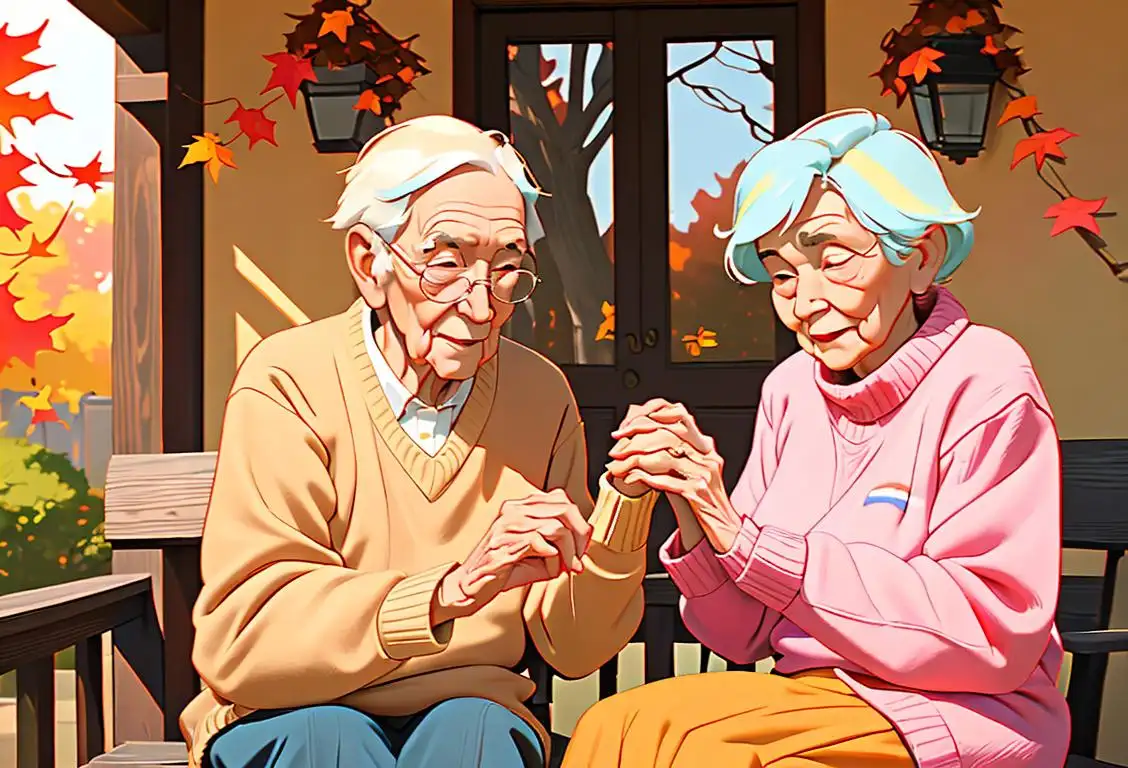National Sisters Day

Isn't it crazy how your sister can go from being your favorite person in the world to your number one enemy within minutes? Or how that chocolate you stole from her a decade ago is still a hot topic? Yes, sisters can be a real handful, so it's only fair they get their own day to shine - National Sisters Day!
When is Sisters Day?
It's national sisters day on the 5th August.
When is National Sisters Day?
Sisters across the country unite (peacefully, we hope) to celebrate National Sisters Day which falls on the first Sunday in August every year. In 2018, it was on this day – 5th of August, to be precise, that we saw the most mentions of National Sisters Day online, with an impressive total of 38,120! Filial love clearly conquers all, digital and beyond!
Where Did National Sisters Day Originate?
If your sibling rivalry antenna just went up and you're questioning, 'Why isn't there a National Siblings Day?' - pause! There actually is, but sisters are so fantastic that they have a day all to themselves too! The origins of National Sisters Day are somewhat shrouded in mystery, a bit like your sister's ability to find out about your secret crush!
How is National Sisters Day Celebrated?
Like anything to do with sisters, National Sisters Day can be what you want to make of it. Some people spoil their sisters with heartfelt notes, bouquets of flowers, or, for the super generous, the clothes they’ve been eyeing in your closet. Others may choose to spend the day sharing old memories, indulging in nostalgic pastimes, or even reigniting age-old feuds (because come on, what's a sisters day without a tiny argument?).
Why National Sisters Day?
The aim of National Sisters Day is straightforward: to celebrate the unique bond between sisters. Whether she's your tag-team partner in cleaning chores or your arch-nemesis in monopoly, she's played a huge part in making you who you are today. National Sisters Day is the perfect excuse to come together and celebrate that glorious, and slightly chaotic, bond.
History behind the term 'Sisters'
12th century
Evolution from 'suster' to 'sister'
The term 'sister' can be traced back to the 12th century when it evolved from the Old English word 'suster' meaning female sibling. This word was derived from the Proto-Germanic word 'swester', which can be found in various Indo-European languages, including German 'Schwester,' Dutch 'zuster,' and Swedish 'syster'.
14th century
Adoption in Middle English
During the 14th century, the term 'suster' gradually transformed into 'sister' in Middle English. This linguistic change reflected the development of the English language and its pronunciation. Middle English saw the emergence of more recognizable spelling and pronunciation patterns for words.
17th century
Religious connotation
In the 17th century, the term 'sister' gained a religious connotation. It began to be used to refer to women who were members of religious orders or communities, taking religious vows. This association of 'sister' with the nunhood is still prevalent today, particularly in Catholic and Anglican contexts.
19th century
Expansion to broader meanings
In the 19th century, the term 'sister' started to encompass wider meanings related to closeness and kinship. It began to be used to describe women who shared strong bonds and friendships, metaphorically representing a sense of sisterhood. This extension further expanded the cultural significance and embracing nature of the term.
20th century
Feminist movement and sisterhood
During the 20th century, with the rise of feminist movements around the world, the term 'sister' took on an empowering significance. It became a symbol of solidarity and support among women, as they fought for equal rights and challenged gender inequality. Phrases like 'sisterhood is powerful' became popular rallying cries for women's rights.
21st century
Modern usage and sisterhood online
In the 21st century, the term 'sister' continues to evolve and adapt to the digital age. With the widespread use of social media and online communities, the concept of sisterhood has extended to include virtual connections. Many women now refer to their close friends and supporters online as their 'sisters,' fostering a sense of belonging and shared experiences.
Did you know?
Did you know that siblings, and especially sisters, are known to help people live longer, healthier lives according to numerous scientific studies? Perhaps that extra slice of cake she ate wasn't such a bad thing after all.Tagged
fun loved ones celebration remembrance family siblingsFirst identified
10th April 2015Most mentioned on
5th August 2018Total mentions
38120Other days
Sisters Day
Pantawid Pamilya Family Day
Sons Daughers Day
Parents Day
Sons Daughters Day
Aunts Day
Fam Day
Grandparents Day
Only Child Day
Oldest Child Day








